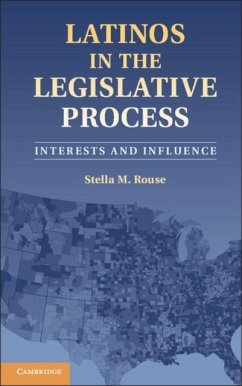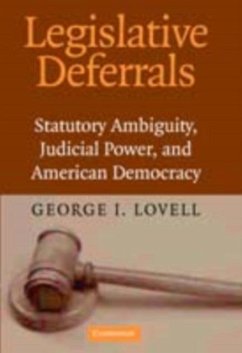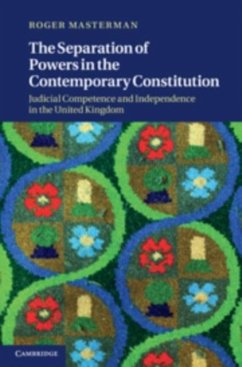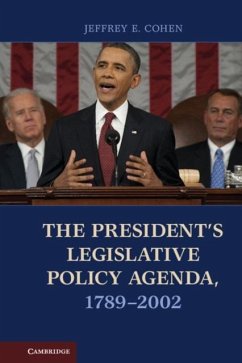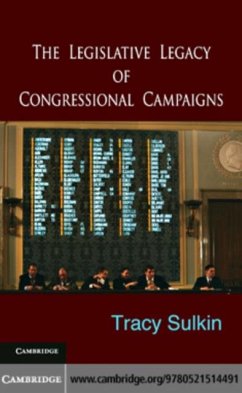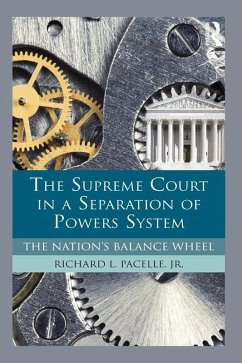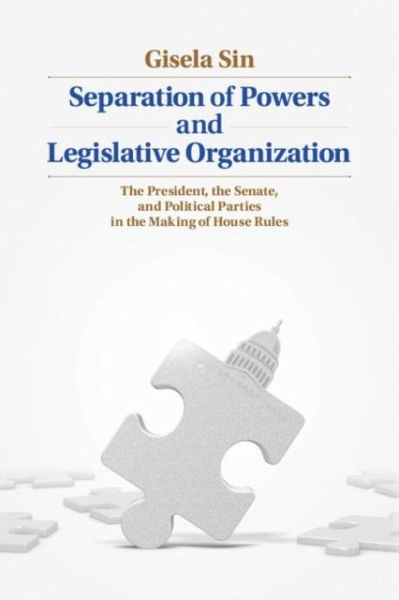
Separation of Powers and Legislative Organization (eBook, PDF)
The President, the Senate, and Political Parties in the Making of House Rules
Versandkostenfrei!
Sofort per Download lieferbar
19,95 €
inkl. MwSt.
Weitere Ausgaben:

PAYBACK Punkte
10 °P sammeln!
This book examines how the constitutional requirements of the lawmaking process, combined with the factional divisions within parties, affect US representatives' decisions about how to distribute power among themselves. The incorporation of the presidential, senatorial, and House factions in the analysis of House rule making marks an important departure from previous theories, which analyze the House as an institution that makes laws in isolation. This book argues that, by constitutional design, the success of the House in passing legislation is highly contingent on the actions of the Senate a...
This book examines how the constitutional requirements of the lawmaking process, combined with the factional divisions within parties, affect US representatives' decisions about how to distribute power among themselves. The incorporation of the presidential, senatorial, and House factions in the analysis of House rule making marks an important departure from previous theories, which analyze the House as an institution that makes laws in isolation. This book argues that, by constitutional design, the success of the House in passing legislation is highly contingent on the actions of the Senate and the president; and therefore, also by constitutional design, House members must anticipate such actions when they design their rules. An examination of major rule changes from 1879 to 2013 finds that changes in the preferences of constitutional actors outside the House, as well as the political alignment of these political actors vis-a-vis House factions, are crucial for predicting the timing and directionality of rule changes.
Dieser Download kann aus rechtlichen Gründen nur mit Rechnungsadresse in A, B, BG, CY, CZ, D, DK, EW, E, FIN, F, GR, HR, H, IRL, I, LT, L, LR, M, NL, PL, P, R, S, SLO, SK ausgeliefert werden.





